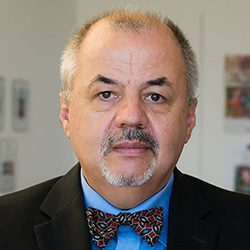
Memoirs of UN Secretaries-General: political correctness and prediction of the future

Author: Petru Dumitriu
The United Nations’ Secretaries-General who came in office after U Thant have no excuse for being, if they were, politically incorrect. I reckon that because U Thant, who served in this position from 1961 to 1971, provided himself and his successors with a decent description of ‘political correctness’ and with good advice on how to deal with this bottleneck.
One of my problems in compiling this record[1] was deciding how much to reveal, without wounding or embarrassing some high government leader, official, or national spokesman. The demarcation line between what should and should not be disclosed is very thin, however, and I believe that it will be in the public interest if I go as far as I can in the disclosure of facts and my own assessment of those facts. (p. xvii)
I leave it to the astute readers of this blog to judge the value of such assertion.[2]
In the light of this view, it was not surprising that I was not able to find in U Thant’s memoirs nasty and unsuitable testimonies that could have embarrassed high leaders and officials. After all, the third Secretary-General of the United Nations was the first one to consume two full terms in office.
He deliberately chose those revelations that might be relevant for the future, because, he said, ‘tomorrow is more important that today’.
The future of U Thant became at a certain juncture the past of the United Nations and of the world as such. The United Nations was the arena of vocal confrontations characteristic to the Cold War era. The United Nations could not turn a blind eye to such conflict despite the taboos of political neutrality and non-interference in the domestic affairs of sovereign states. The Cuban missile crisis, the Dominican crisis, the war in Vietnam, the invasion of Czechoslovakia, and other forms of fight for conquering spheres of influence, happened during his time. In view of the inherent limit of its operational and legal means, the United Nations and its Secretary-General engaged in admirable mediation and facilitation efforts in the service of peace.
So, from your comfortable post-factum perspective, you may be interested to know what U Thant actually thought about the future of the Cold War:
While there is no doubt that political ideologies still constitutes the basis of the most serious tension in the world, one can see that the rigid concepts of capitalism and communism are gradually giving way to a more eclectic approach. Capitalist countries have accepted several socialist ideas, such as planned economic growth, full employment, and equality of opportunity, and have adopted several measures in the field of social security that would have been considered revolutionary at the beginning of this century. Communist countries, in an effort to improve their production and to satisfy the needs of their people, are, on the other hand, using methods developed in capitalist systems, such as incentives.(…)
I do not regard these developments as implying any weaknesses on the part of either capitalism or communism. They are only signs that, as a result of their effort to be efficient and to promote the greatest good of the greatest number – which, after all, is a common goal of all political systems – the sharp distinction between the two systems are beginning to lose their edge. (pp. 441-442)
It is up to you, distinguished readers, to do the check against reality.[3] U Thant’s evaluation is not only a very politically correct statement, it also reflects authoritative theories on the convergence of systems that existed at the time.
One conclusion: it is difficult to be politically correct and, at the same time, make precise predictions about the future.
As no one is perfect, U Thant dares for once, to be politically incorrect, although he does not use names:
It is a sad fact, however, that most member states use the machinery of the United Nations only when they feel that their own interests will be served by such use, or when all unilateral efforts at a solution have failed. (p. 453)
This time he was right and his prediction came true, if anyone had had doubts before.
[1] U Thant (1978) View from the UN, David & Charles (Publishers) Limited.
[2] One remark, nonetheless: the famous champions of political incorrectness, Edward Snowden and Julian Assange, definitely did not read U Thant’s memoirs.
[3] Do not be so tough, though, you who could not predict the result of the semi-final between Germany and Brazil at the football World Cup!

